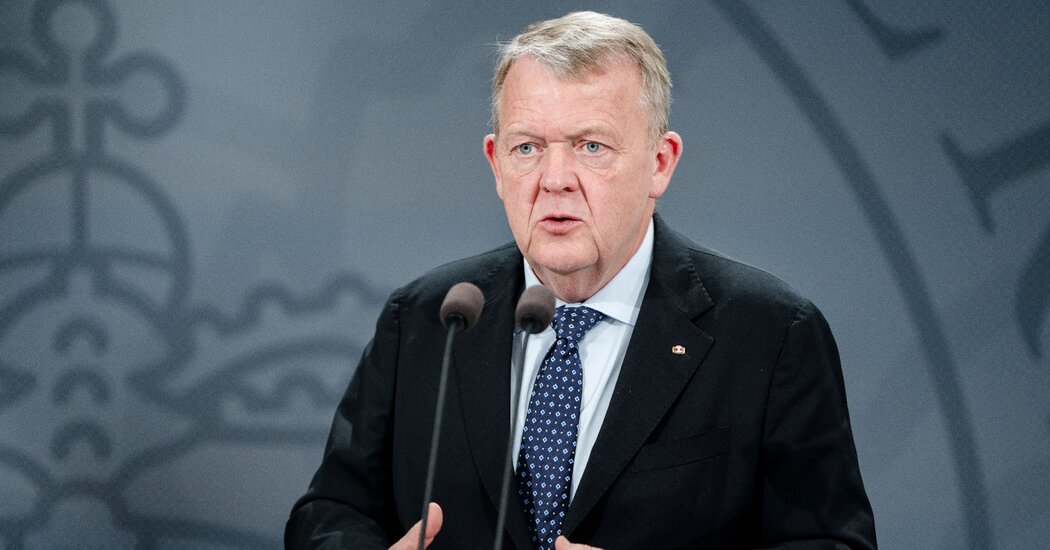The Danish government summoned the American ambassador to express its displeasure after a report that the Trump administration was escalating its spying on Greenland.
The Danish foreign ministry said that Jennifer Hall Godfrey, the acting U.S. ambassador to Denmark, had been called for a meeting after the Wall Street Journal reported that the Trump administration had ordered U.S. intelligence agencies to step up their surveillance on Greenland, an overseas territory of Denmark. A representative from Greenland’s government was also at the meeting.
Lars Lokke Rasmussen, the Danish foreign minister, said the purpose was to make “absolutely clear” that Denmark was unhappy, and he emphasized that any efforts to “drive wedges into the unity of the kingdom” would not be tolerated. He declined to discuss the substance of the conversation at the meeting.
President Trump has talked about acquiring Greenland since his first term in office. In a recent interview with NBC News, Mr. Trump reiterated that the United States “needs” Greenland for national security purposes — and refused to rule out the use of military force to obtain it.
“I’m not saying I’m going to do it, but I don’t rule out anything,” he said. He promised that Greenland’s 56,000 residents would be “taken care of and cherished.”
Greenlanders, however, are not buying it. A recent opinion poll showed that the vast majority did not want to join the United States. A visit in March by Vice President JD Vance and his wife seemed to backfire and turned even more Greenlanders off.
Both Greenlandic and Danish officials have warned that they could close the American Consulate in Nuuk, Greenland’s capital.
“They got a consulate because they were supposed to promote positive relations between Greenland and the U.S.,” Rasmus Jarlov, the chairman of the Danish Parliament’s defense committee, told Denmark’s national broadcaster. “Not to sit up there in a huge office in the middle of Nuuk and carry out subversive activities.”
But Mr. Rasmussen, the foreign minister, flatly rejected calls to close the U.S. Consulate in Nuuk, calling it “a very far-reaching decision” and emphasizing that the United States remains “a very, very close ally of Denmark.”
According to The Wall Street Journal, officials under Tulsi Gabbard, the director of national intelligence, instructed agencies such as the C.I.A. and National Security Agency to gather information on Greenland’s independence movement and attitudes toward American mining interests. The agencies were also asked to identify individuals in Greenland and Denmark who support U.S. objectives.
Matias Seidelin, a security analyst at OLFI, an independent Danish news website specializing in defense and security policy, called the reported spying “a hostile act,” noting that the United States is one of Denmark’s closest security and intelligence partners.
“If you start being spied on by your own ally, it’s more than a diplomatic issue — it’s a breach of trust,” he said.
Mr. Seidelin added the allegations of spying put Denmark in a tricky position.
“We’ve been deeply dependent on the U.S. since the end of World War II,” he said, citing the help America had given Denmark during the Cold War, to combat terrorism threats and Russia. “Danish politicians have to carefully balance not pushing the Americans away, while also not tolerating everything.”
Denmark’s intelligence service, PET, declined to comment on the specific allegations in the Wall Street Journal report, but issued a statement Wednesday saying that the country faces its “most serious security policy situation since the end of the Cold War.”
“Based on this American interest and the increased international focus on Greenland,” the statement said. “PET assesses that there is an elevated threat of espionage,” the statement added.
Jens-Frederik Nielsen, Greenland’s prime minister, called the reports of U.S. espionage in Nuuk “completely unacceptable,” “entirely abnormal” and “disrespectful toward an ally,” adding that Greenland’s position had been made “very, very clear.”


